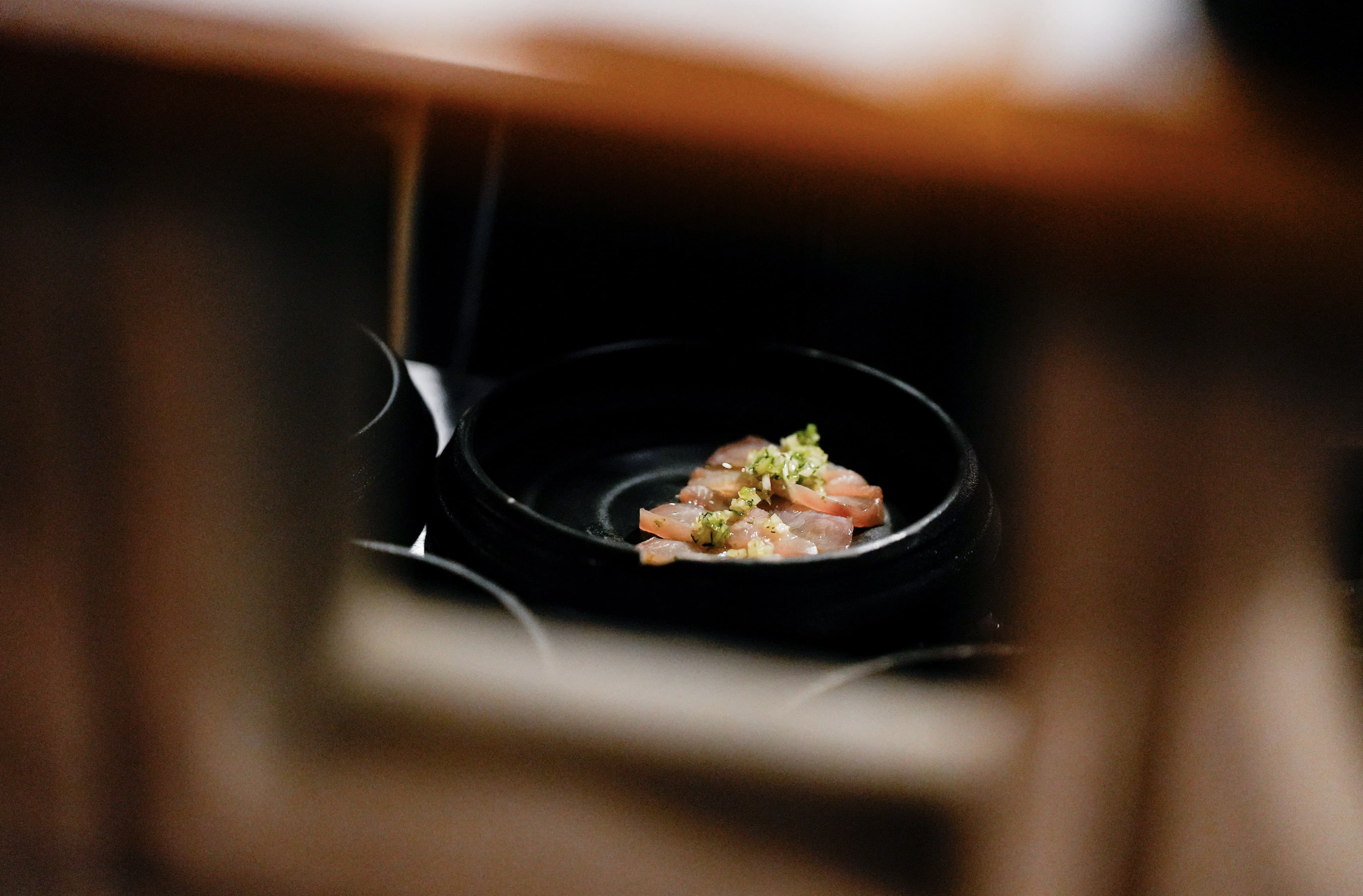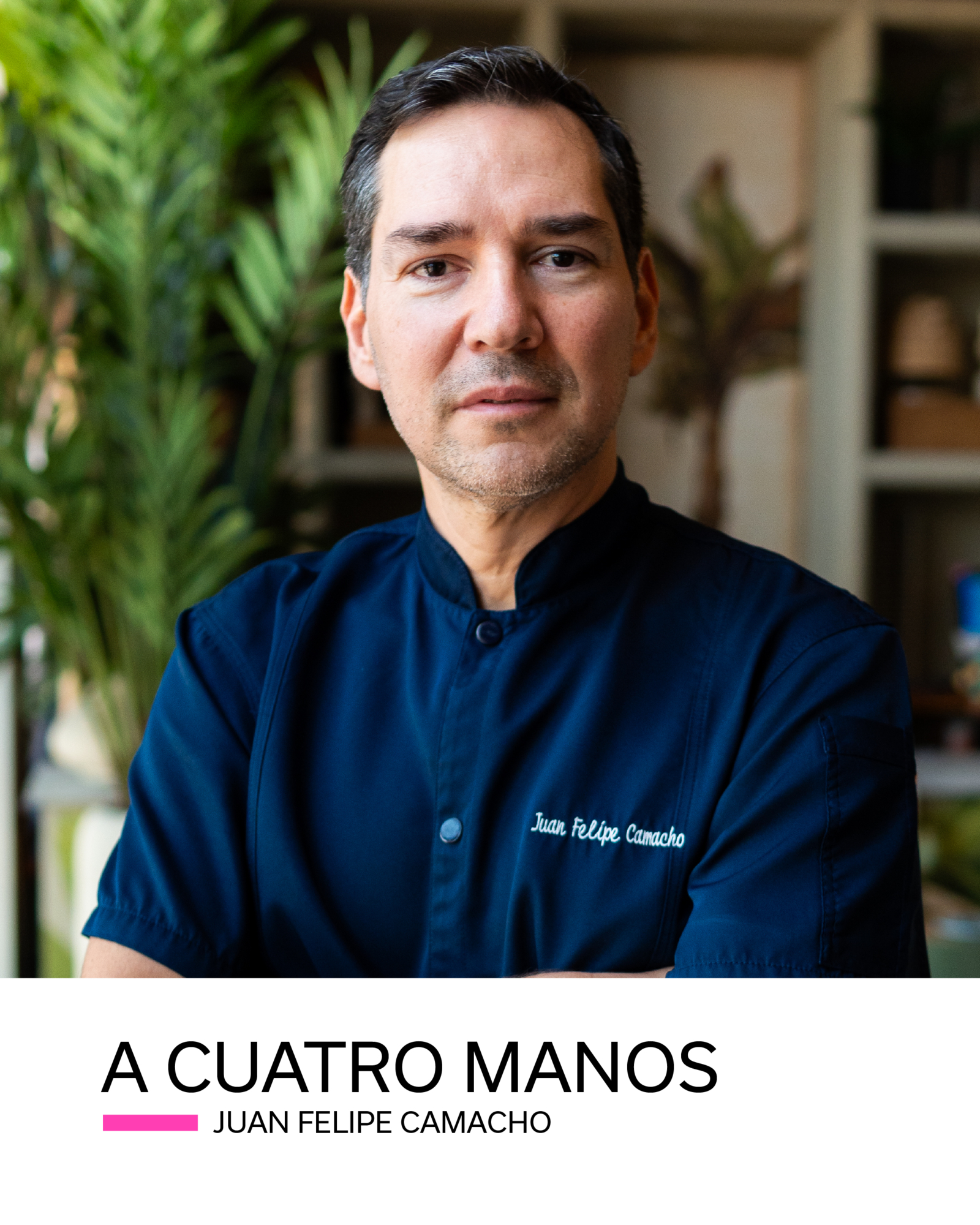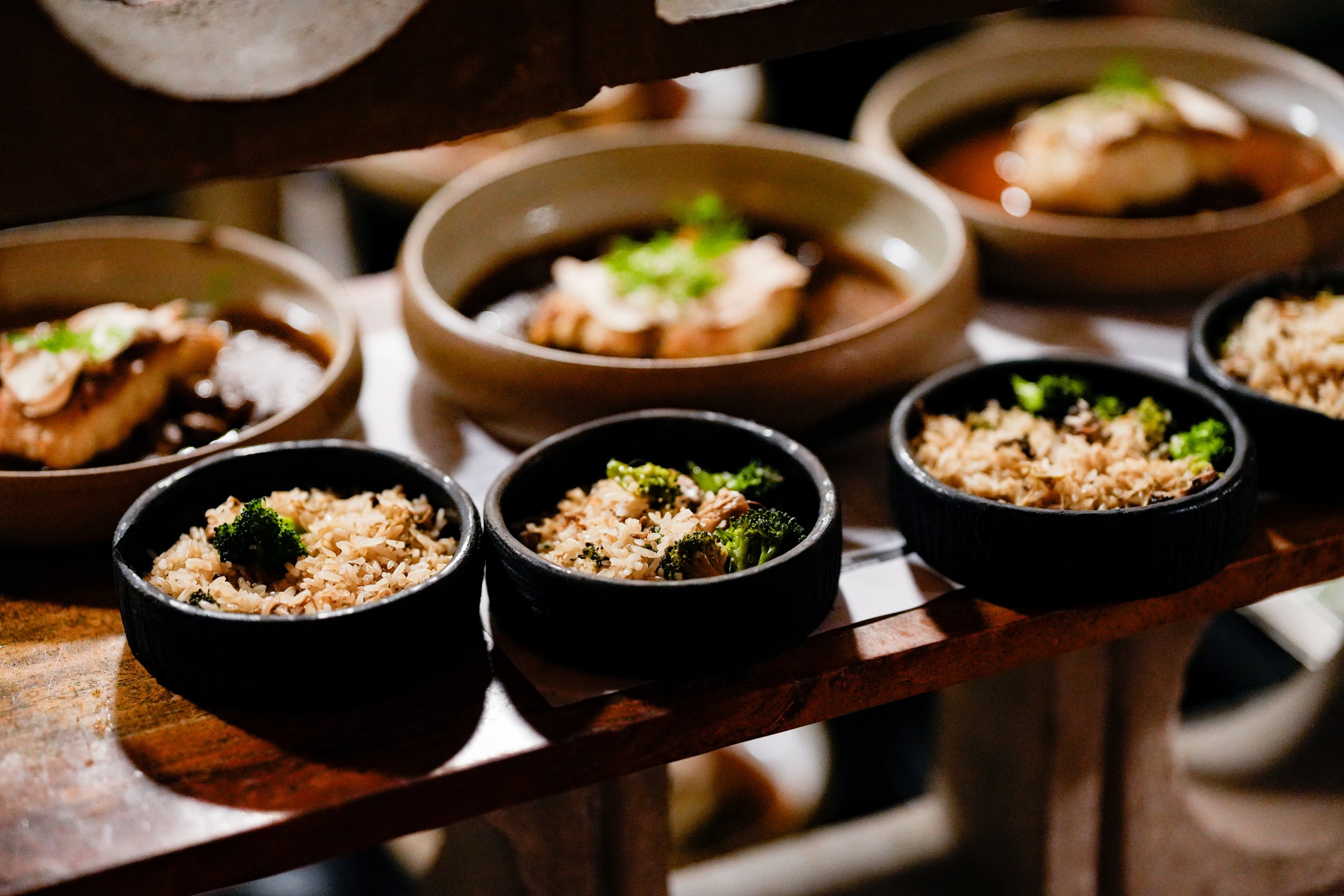The Ibagué Music Festival 2025 brings a flavorful experience, led by Tolima chef Juan Felipe Camacho.

The Ibagué Festival has set out to go beyond music and offer its visitors other sensory experiences. Thus was born 'A 4 manos' (A Four Hands), a series of gastronomic events in which signature dishes directly inspired by music are prepared using local ingredients.
Leading this series will be chef Juan Felipe Camacho, born in Ibagué but residing in Cartagena, where he runs the restaurant Donjuan. On Thursday the 4th, Camacho will cook with chef Alfredo Sibaja at La Capilla restaurant. "We're going to prepare a five-course meal, each trying to showcase the best of their restaurant, but also to evoke local flavors," Camacho says.
On Friday the 5th, dinner will be at the Hotel FR, at the Nativo restaurant, which, according to Camacho, also embraces the idea of using only local products. That evening, the guest chef will be Jaime Torregrosa, from the Humo Negro restaurant in Bogotá, which specializes in conceptual cuisine.
The final day, Saturday the 6th, will take place at the Club Campestre restaurant and will feature Alejandro Pinzón, resident chef, and Pedro Mosqueda, a Cartagena chef who, Camacho says, has a sustainability project based on his own garden and recycling.
“In all cases, we favor zero-mile cuisine,” Camacho says of these experiences.

'A 4 manos' (A Four Hands), a series of gastronomic events at the 2025 Ibagué Music Festival. Photo: Courtesy of the Ibagué Music Festival.
I strongly associate Tolima with agriculture, and I'd say rice is our number one product. Also fruits and vegetables, including the mango crops that grow in various regions of Tolima. In fact, I'd say the hallmark is agriculture, more than any particular ingredient.
So, is a good cook in constant contact with the farmer? It's a deeply caring relationship, at least for me. It doesn't make sense for the chain to be the other way around, meaning they produce to sell to someone else. Instead, we have to be the ones who go to the fields and tell them what we're looking for, what ingredients are good for us. We also have to take care of the organic aspect: that these crops aren't harmful to our end customer. The same goes for fishermen, or those who supply us with meat and milk. I would say the world should shift not toward mass production but toward conscious production. Go to the fields and source their supplies in moderation.
What does the concept of “kilometer zero” mean? It means that all ingredients, or more than 60 percent, are locally produced. They must be sourced within a kilometer radius, based on the restaurant's location. This is what chefs are now looking for for several reasons: sustainability, ease of availability, and support for local producers.

Juan Felipe Camacho lives in Cartagena, where he runs the restaurant Donjuan. Photo: Courtesy of the Ibagué Music Festival
Inspiration works in many ways. Remember that all information, no matter which of the senses it enters the body through, goes to a core that is our brain. Connections are made in the brain: ingredients with sounds, images, and so on. But it's also undoubtedly a personal and unique process because, clearly, not everyone likes the same music or the same food. The beautiful thing about combining these themes, flavor and sound, is that music evokes moods: longing, happiness, nostalgia, and it's the same when you're creating a dish; you feel things, you experiment, and you go through your creative process. On the other hand, I'm convinced that four people with the same ingredients in their hands produce four completely different dishes.
Are there any ingredients you've discovered in the last year, since you were cooking at the last Festival? I'm a big fan of spices and aromatic herbs, and there's one I'm crazy about. I'm going to use it in my Ibagué dinner: pennyroyal. It's very native to my hometown, Tolima, and I recently rediscovered that flavor. It really catches my attention. It's a plant similar to thyme, but it looks more like a vine; it has a very aromatic, intensely small leaf, and you have to know how to use it. That's the science of cooking: learning to use ingredients in the right proportion, so that they can bring out the other flavors and not be invasive.
Now I'm going to ask you to tell me what the must-have ingredient in each meal is. Let's start with breakfast... Without a doubt, the arepa. Or a corn product, or maybe even a rice bread.
Lunch… I'll take a chance on rice or grains.
And finally, dinner… At night, well, that's difficult for me because I've been living in Cartagena for a long time now and I can't go without fish.

"A 4 manos" includes local ingredients. Photo: Courtesy of the Ibagué Music Festival
The sea produces a huge amount of fish. As for flavors, since everything is highly industrialized these days, what you get are farmed fish: tilapia is farmed, so it has a different flavor. But if you try a rockfish, one of those that eat crustaceans, you'll notice it's tastier. I love freshwater fishing, but I prefer the properties of saltwater because the wilder the fish, the more interplay of flavors and textures there will be.
eltiempo




%3Aformat(jpg)%3Aquality(99)%3Awatermark(f.elconfidencial.com%2Ffile%2Fbae%2Feea%2Ffde%2Fbaeeeafde1b3229287b0c008f7602058.png%2C0%2C275%2C1)%2Ff.elconfidencial.com%2Foriginal%2F922%2F2e8%2F433%2F9222e8433bd7856800b55109ce570508.jpg&w=1280&q=100)